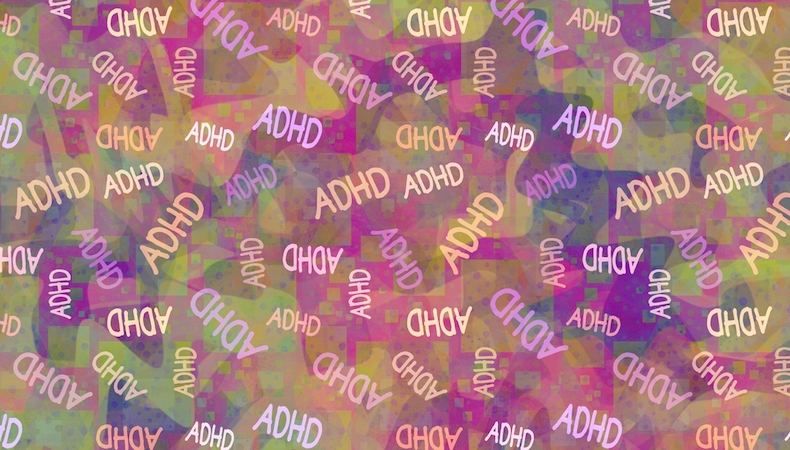How to better support colleagues with ADHD – a first-hand account
Today’s HR leaders are doing more and more to encourage and embed diversity, equality and inclusion as a core principle in the workplace. People with ADHD can thrive in a working environment that supports their strengths.
Whether you’re looking to provide a more welcoming environment for potential hires or support your colleagues who are showing signs of ADHD, getting your approach right could enable your company to benefit from unique talent.
Jake Jones, Marketing Executive and former Formula 1 motorsport journalist, talks about his experiences of living with ADHD in an unsupportive working environment and how it affected his career.
ADHD often goes undiagnosed
According to ADHD UK, around 4% of adults in the UK live with ADHD. It’s a neurodevelopmental disorder characterised by inattentiveness, restlessness and impulsive behaviour. While often diagnosed at childhood, there’s a good possibility that members of your workforce are suffering from the disorder without being properly diagnosed.
In adults, the symptoms of ADHD are more difficult to define. This is largely due to a lack of research.
The NHS has listed a long list of symptoms that adults may display, including:
- Carelessness and lack of attention to detail
- Poor organisational skills
- Inability to focus or prioritise
- Forgetfulness
- Extreme impatience
- Struggling to fit in
Jones’ experience of ADHD in the workplace has, for the most part, been negative.
Open and honest about his ADHD, false promises of understanding have largely come and gone without any action being taken. Symptoms out of his control have often been used against him, inevitably leading to a forgettable experience working for each company.
Says Jones: “Employers say they understand but don’t take action. They’ve ignored advice I’ve sent to them, and it’s ended with ADHD symptoms being used as a character flaw against me. I’ve been called lazy, slow and angry. A colleague with a teenage mentality, a fun sponge and not a nice person. That’s all for displaying symptoms I simply can’t help.
“It sucks. It shapes your view of the world negatively as you grow up, especially when you’re made to feel that it’s your fault.
“Even your own family may not take steps to understand you or tolerate you, so that gives an indication of how far away the workplace is from championing people with ADHD.”
Before he was diagnosed, Jones said he found himself in a job-loss cycle.
“After doing everything I could to understand myself, all the counselling, medication and tests so people and employers could understand me, what shocked me most was that it didn’t make any difference. People still do not or will not understand in the way you need them to and it’s disheartening. Even mentioning the word ADHD is seemingly a big no-no.
“Admitting or telling someone in the workplace you have ADHD, asking for reasonable adjustments, is best avoided until there is someone in HR who may better understand. It’s recommended that people with ADHD read and understand the Equality Act of 2010. I did and I’ve already had to threaten legal action against discrimination.”
Lack of support
Companies are not doing enough to offer support, Jones says.
“It’s still seen as a negative personality trait rather than embracing a hire for who they really are as a person. Until attitudes shift via a mass government information campaign or something similar, I don’t think it will change either. It’s just the world we live in.
“The founder of LadBible recently found out he has ADHD, and now runs a podcast on Spotify. It’s refreshing to see high-profile people sharing their experience. It gives me hope that we’re not too far away from change.”
The positive impact employees with ADHD can have
It’s time to start celebrating what makes your employees unique. Jones believes there’s a huge number of positive traits employees with ADHD can have on a business, and if you take the time to understand those individuals, you can both thrive together.
“There can be plenty of positives. Creative vibrance, passionate energy, extreme hyper-focus on stimulating tasks. I’d argue I can get a month’s workload done to a higher standard in half the time if I’m really interested in something.
“By extension, we’re great problem solvers as we’ve already thought of 10 scenarios by the time others may have thought of one. We can be great in a crisis, as we’re managing multiple crises almost daily.”
Jone said employers should develop a more supportive working environment through:
- Mental health support – he says there are few services available due to austerity and prevailing attitudes are that ADHD sufferers are simply ‘bad tempered’, so employers should fill this support role where the government has struggled.
- Reasonable adjustments – Offer employees breaks from their desks, time away from loud spaces and an understanding over lateness or impulsiveness. Don’t try and put square pegs in round holes. Simply talk to your employees and try to understand what they need and why when they speak to you.
- Research ADHD – take time to familiarise yourself with the traits and symptoms.
- The ADHD Foundation document – “Something every/any employer should have”.
Supplied by REBA Associate Member, Zest
Zest is the next generation platform that’s reinventing the world of employee benefits.








